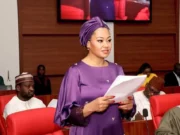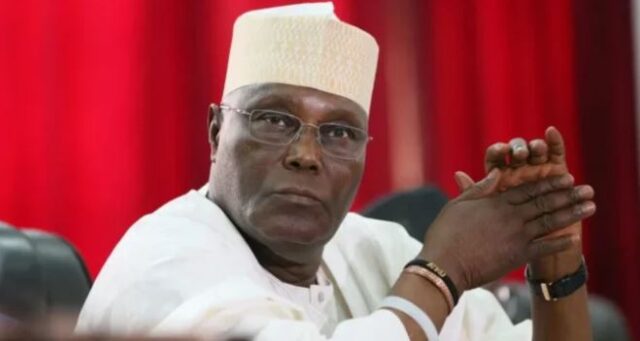Atiku Abubakar, the 2023 presidential candidate of the Peoples Democratic Party (PDP), has expressed concerns over President Bola Tinubu’s 2025 budget proposal, suggesting it mirrors the borrowing patterns of former President Muhammadu Buhari’s administration.
In a statement released on Sunday, Atiku analyzed the proposed budget, highlighting a projected expenditure of ₦48 trillion against an anticipated revenue of ₦35 trillion, resulting in a deficit exceeding ₦13 trillion—equivalent to 4% of Nigeria’s GDP.
To address this fiscal gap, the administration plans to secure over ₦13 trillion in new borrowings, including ₦9 trillion in direct loans and ₦4 trillion in project-specific financing.
Atiku criticized this approach, stating, “This borrowing strategy mirrors the approach of previous administrations, leading to escalating public debt and compounding risks related to interest payments and foreign exchange exposure.”
He also expressed concern over the allocation of ₦15.8 trillion (33% of total expenditure) to debt servicing, noting that it nearly equals the planned capital expenditure of ₦16 trillion (34%).
“This imbalance undermines fiscal stability, crowds out essential investments, and perpetuates a cycle of increasing borrowing,” Atiku remarked.
Furthermore, he highlighted the government’s recurrent expenditure, which accounts for over ₦14 trillion (30% of the budget), as disproportionately high.
“This reflects the continued operation of an oversized bureaucracy and inefficient public enterprises, leaving limited resources for development projects,” he added.
Atiku emphasized the need for structural reforms and fiscal discipline to address Nigeria’s multifaceted economic challenges, urging the administration to prioritize reducing inefficiencies in government operations and focusing on long-term fiscal sustainability.
The 2025 budget proposal, presented by President Tinubu to a joint session of the National Assembly, allocates ₦4.91 trillion for defense and security, ₦4.06 trillion for infrastructure, ₦2.48 trillion for health, and ₦3.52 trillion for education.
Atiku’s critique underscores the ongoing debate over Nigeria’s fiscal policies and the sustainability of its debt management strategies.





























